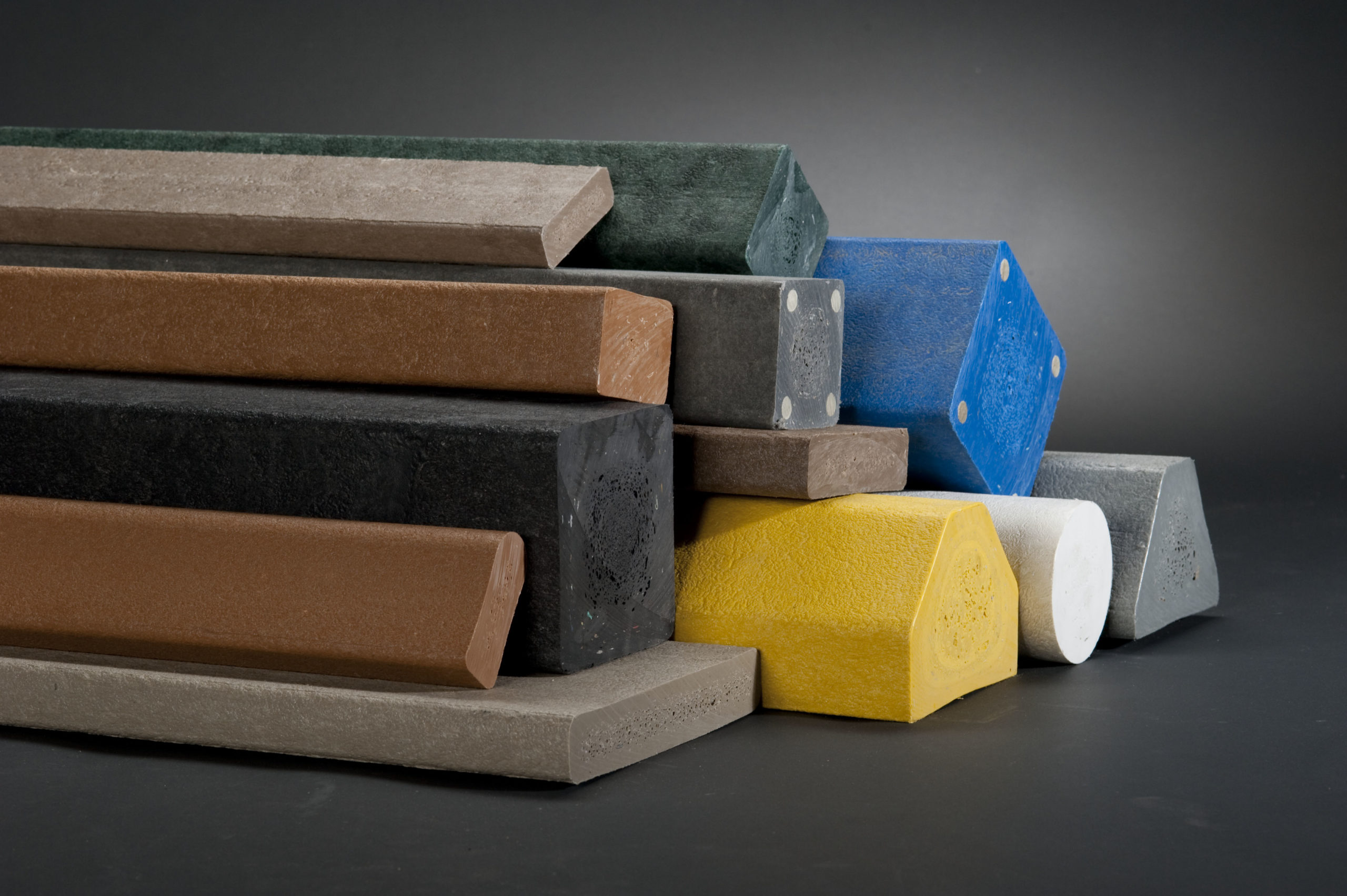High-Performance Composites for Eco-Friendly Building And Construction
High-Performance Composites for Eco-Friendly Building And Construction
Blog Article
Discovering the Uses and Advantages of Recycled Composites in Modern Industries
The combinations of recycled materials with advanced composite modern technologies presents a promising avenue for improving sustainability, resilience, and cost-efficiency throughout numerous industries. As industries seek ingenious services to attend to ecological worries and improve operational effectiveness, the consolidation of recycled compounds emerges as a compelling choice.
Environmental Benefits of Recycled Composites
The use of recycled compounds in modern-day industries provides considerable environmental benefits, adding to the decrease of waste and the preservation of all-natural sources. By integrating recycled composites into making processes, markets can decrease their reliance on virgin products, consequently minimizing the amount of waste produced and the energy required for extraction and manufacturing. This change towards utilizing recycled compounds aids in diverting materials from landfills, easing the problem on waste monitoring systems, and lowering greenhouse gas exhausts connected with conventional manufacturing practices.
In addition, the usage of recycled compounds promotes the preservation of all-natural resources such as wood, minerals, and water, which are commonly depleted via the removal and processing of raw products (composites). By prolonging the lifespan of products with recycling, industries can assist protect ecological communities and biodiversity by reducing the demand for brand-new sources. On the whole, the fostering of recycled composites in modern-day markets plays a critical function in promoting sustainability and minimizing the environmental influence of manufacturing processes
Boosted Toughness in Product Production
With a concentrate on long life and toughness, incorporating recycled composites right into product production procedures boosts toughness and sustainability. By utilizing recycled compounds, manufacturers can develop items that are not just strong but likewise immune to damage, making them excellent for long-lasting usage in various markets. The combination of various materials in recycled composites can frequently cause enhanced toughness and toughness contrasted to conventional products, giving a cost-effective solution for creating durable goods.
One of the vital advantages of making use of recycled compounds in product manufacturing is the capability to customize the material homes to fulfill details sturdiness needs. By readjusting the structure and production strategies, manufacturers can customize the recycled composites to stand up to harsh ecological problems, hefty tons, or frequent use without endangering on efficiency. This adaptability in style and manufacturing permits the production of very durable products that keep their honesty with time, reducing the demand for constant substitutes and inevitably adding to a much more sustainable production process.
Cost-Effectiveness and Financial Benefits
Including recycled compounds into item production not just enhances durability and sustainability yet additionally provides considerable cost-effectiveness and economic advantages. Making use of recycled composites can result in minimized material expenses as recycled products are often more economical than virgin products. In addition, recycling composite materials can decrease garbage disposal costs and reduce the demand for landfill area, adding to total price financial savings for markets.

Advancement and Layout Versatility With Recycled Composites
Utilizing recycled composites in contemporary industries supplies exceptional possibilities for advancement and layout flexibility. By including recycled read this article products into composite manufacturing processes, business can press the boundaries of conventional style restrictions Source and explore new possibilities. The convenience of recycled composites permits the development of complicated forms and frameworks that may not be achievable with traditional materials.
Among the essential benefits of recycled composites is their capability to be molded right into numerous types, offering designers the liberty to explore special forms and sizes. composites. This adaptability opens up a globe of innovative opportunities, allowing the advancement of light-weight yet long lasting items that fulfill the specific demands of different markets
In addition, the usage of recycled composites promotes lasting practices and sustains the circular economic situation by minimizing waste and decreasing the environmental effect of manufacturing processes. This concentrate on environmentally friendly style solutions aligns with the growing pattern in the direction of sustainability in modern markets, making recycled compounds a valuable source for forward-thinking and ingenious firms.
Applications Across Different Industries
Recycled compounds locate impactful and varied applications throughout a vast array of sectors as a result of their unique residential or commercial properties and sustainability advantages. In the vehicle market, these products are significantly made use of for producing light-weight and durable components, improving gas effectiveness and minimizing carbon discharges. The aerospace market gain from recycled composites in the manufacturing of aircraft components, where the products' strength-to-weight proportion is critical for guaranteeing security and performance. In construction, these compounds are utilized for creating strong yet eco-friendly structure materials, adding to sustainable framework advancement. The renewable resource sector employs recycled compounds in wind turbine blades and solar panels, using their toughness and resistance to severe ecological conditions. In addition, the marine sector utilizes these materials for producing watercraft hulls and components, using improved resilience and deterioration resistance. The convenience and sustainability of recycled composites make them useful throughout various industries, driving advancement and ecological stewardship. composites.
Final Thought
Finally, the application of recycled compounds in modern-day industries provides substantial environmental benefits, boosted durability in product manufacturing, cost-effectiveness, and economic benefits. The use of recycled composites enables for technology and layout versatility across numerous sectors. Overall, the adoption of recycled composites offers a functional and lasting solution for meeting the demands of check out this site the market while also lowering environmental impact.

One of the vital advantages of using recycled compounds in product production is the capability to tailor the product homes to meet details durability needs. Using recycled compounds can lead to minimized material prices as recycled materials are commonly less costly than virgin products. The aerospace market benefits from recycled compounds in the production of airplane parts, where the products' strength-to-weight ratio is critical for ensuring security and performance.
Report this page